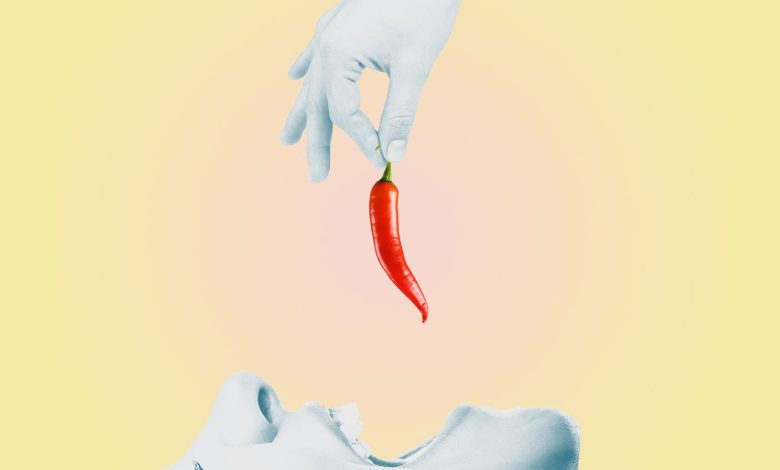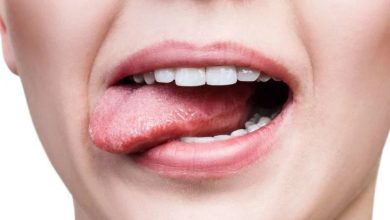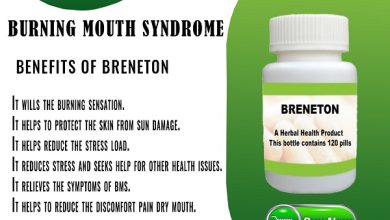How to Stop Your Mouth from Burning When You Eat Spicy Food
Here's the science behind why spicy food makes your mouth burn, and how to stop it.

We’ve all experienced it: Believing you can handle the heat from a spicy meal, only to discover—to your dismay and the laughter of your friends—that your mouth has turned into a flaming hell that, like hiccups, seems to go on forever but actually only lasts for a short while.
Why Do Spicy Foods Taste Hot?
Capsaicinoids, a non-nutritive chemical molecule that our brains interpret as heat or, in excess, even pain, are the source of the spiciness found in spicy foods. Importantly, our taste buds only detect sweet, sour, salty, bitter, and umami flavors. They do not detect capsaicinoids. Rather than only alerting our tongues, spice triggers nerve endings that are present almost everywhere on our bodies, to varying degrees. It is a component of the so-called common chemical sense.
Danielle Reed, a renowned researcher in the science of taste who conducted a study to determine whether sensitivity to capsaicin could be genetic, says that “if you put some sugar on your skin, you’re not going to feel sweet, but rather than having specialized receptors or cells, spiciness triggers receptors that are common in the body on the end of sensory nerve endings.” “So if you put a chile pepper on your eye—and you should not do that—you’ll get a burning feeling.”
For this reason, you’re frequently reminded of the “heat” from an extremely spicy meal, well, later on, even after the sensation of heat has subsided in your mouth. “Mucous membranes in particular—not to be indelicate, but they do call it ‘the burn that bites twice’—have much more accessible sensory nerve fibers,” Reed explains.
Why there is any spiciness at all can be inferred from our response to capsaicin. Since birds do not perceive capsaicin as heat, unlike mammals, one popular explanation holds that plants developed to allow birds to continue eating the plant’s fruit (chile pepper) and spreading its seeds while deterring mammals from consuming and harming the plant itself. The human experience of spicy foods also offers a worrisome glimpse into the potential damage COVID-19 may be causing to our bodies. One of the most common signs of COVID is loss of taste and smell, but many patients have also entirely lost the ability to feel heat from capsaicinoids, which suggests the virus may be changing our nerve endings in a fundamental way.
Given that our nerve endings essentially warn us to stay away from capsaicin, why have people been consuming chili peppers for almost 10,000 years? Harold McGee, a food science author, claims that people are “perverse.” “So, occasionally, we can enjoy suffering—a rollercoaster ride is an example of something that’s frightening but secure. Our body can react to an essentially unpleasant sensation by releasing hormones that lessen the painful sensation and make you feel better afterwards. This allows us to enjoy an uncomfortable sensation for its own reason.”
How Do You Stop the Burning from Spicy Food?
The bad news is that there isn’t a miraculous cure that can extinguish the five-alarm inferno that is burning between your tonsils.
“The basic problem is that by the time we feel the pain, the compounds have already gotten inside ourselves, so the idea you can immediately rinse them away just doesn’t work out in practice,” McGee explains.
Don’t think he’s telling the truth? Reed, a taste scientist, regrettably concurs. “I know there are a lot of home remedies, but I don’t know of any scientific principle that’ll let you out,” she continues.
Milk and Other Dairy Products
Consuming dairy products is the most widely recommended home remedy because they contain caseins, which are proteins that bind neatly with capsaicinoids to prevent any capsaicin that hasn’t already hooked onto a receptor from latching on. Instead, the now-neutralized compounds are safely washed down your gullet. For this purpose, full milk is thought to be superior to skim milk by many foodies.
“In practice, you can rinse out the reinforcements that would prolong the sensation, [though] you’re not going to alleviate what you’re already feeling,” McGee explains. “Fatty materials, milk included, will tend to pick up stray molecules in our mouths.”
Bread, Honey and Other Distractions
Many other commonly recommended remedies for spicy meals, such as bread or honey, are really just diversionary measures. “A possibility is that bread is a solid, so you’re chewing on it and generating all sorts of other touch sensations distracting you from the pain,” McGee explains. “Like what’s going on with bread, sweetness is a distraction, and so your brain is apportioning the attention it can pay to things.”
Cubes of ice
Even though the “heat” you get from a chile has nothing to do with temperature, McGee advised literally cooling things down for the fastest respite from spicy heat. “The temperature effect is probably the quickest way you can deal with the problem,” according to him. “Get an ice cube out of your drink and suck on it.”
How Do You Make Spicy Foods Less Spicy Before You Eat Them?
It should go without saying that you should use less chilies if you want your cuisine to be mild. However, we’ve all erred, misjudging a recipe or forgetting that younger, smaller chili peppers have a higher spice content than older, larger ones.
Similar to relieving the burning sensation in your tongue after eating spicy food, there are other commonly used but unsupported scientific methods for reducing the heat in a dish, such as including honey. However, the only surefire way is to dilute it, therefore you might need to increase the amount of each item in your recipe by two or more, excluding the chiles.
Keeping a mouth coating handy is an additional strategy to stop capsaicin from ever reaching those nerve ends. “Especially something like sour cream, which is fatty, will absorb that stuff and coat your tongue to make it difficult,” McGee explains.
But if you’re determined not to have any similar experience to the time you daringly ate a Naga Viper and maybe even had actual steam come out of your ears, there’s one guideline that will surely keep you safe: ordering the grilled cheese is totally acceptable.



